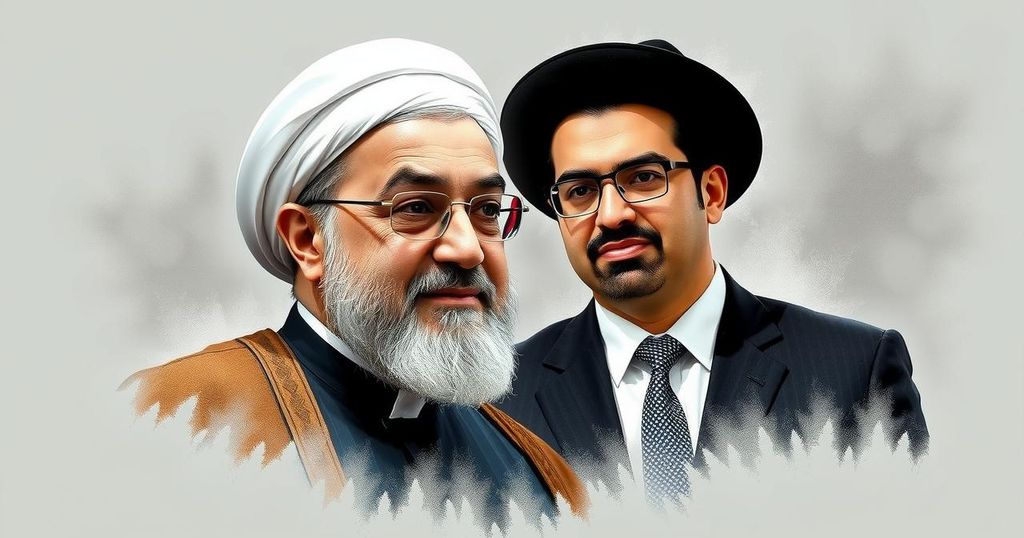Ahmed Al-Shara, Syria’s de facto leader, criticized Iranian meddling in the region, emphasizing Syrian independence from foreign interference. He announced the closure of Iranian-affiliated bases and rejected Iranian influence, while also addressing challenges within the transitional government. Al-Shara’s leadership signifies a critical pivot towards sovereignty and stability amid a backdrop of reduced Iranian presence.
Ahmed Al-Shara, the de facto leader of Syria following the removal of Bashar al-Assad, has expressed significant criticism towards the Iranian regime’s sustained interference in Syria and the broader region. In a recent interview with Al-Arabiya, he articulated the belief that Syrian sovereignty must be prioritized, explicitly stating the hope for constructive relationships with regional and global powers, excluding Tehran if its intervention continues. Al-Shara, previously involved with Hayat Tahrir al-Sham under the alias Abu Mohammad al-Julani, emphasized that the Syrian populace achieved liberation independently and asserted the necessity for Syria to remain free from foreign dominance.
He stated, “We did not enter Tehran or southern Lebanon; we entered our own cities and villages,” highlighting a clear rejection of Iranian influence. In a pivotal move, he confirmed that the Syrian government has disbanded Iranian-affiliated bases and offices, fulfilling a critically important responsibility to ensure national integrity. Al-Shara further challenged Supreme Leader Ali Khamenei’s claims that Iranian proxy forces do not engage in Syria, labeling such assertions as divisive and harmful to the transitional government in Damascus. Al-Shara condemned the actions of Iran as an expression of historical vengeance, which is broadly unacceptable to the Syrian citizens.
Looking ahead, the transitional Syrian government faces a multitude of challenges, notably stabilizing the country and addressing tensions with Kurdish forces. Al-Shara announced intentions to assimilate Kurdish forces within Syria’s defense ministry framework, emphasizing that the heart of the government’s agenda is centered around security and development. Amidst these changes, a significant withdrawal of Iranian-backed forces, including Hezbollah and militias such as Fatemiyoun and Zainabiyoun, further illustrates Iran’s diminished influence in Syria.
Al-Shara described the Iranian regime’s policies as deeply detrimental to Syria’s welfare, highlighting the urgent desire among the Syrian people for a peaceful and sovereign future. With a newly established government dedicated to reconstruction and regional collaboration, the interventionist tactics of the Iranian regime are facing increasing condemnation, both within Syria and beyond its borders.
The current geopolitical landscape in Syria has been complicated by the ongoing civil war, which has seen foreign nations increasingly involved, notably Iran. Following the fall of Bashar al-Assad, the new leadership under Ahmed Al-Shara is attempting to distance Syria from Iranian interference. This shift marks a significant turning point in Syrian politics, as many factions, including Iranian-affiliated groups, have played instrumental roles in the conflict. Al-Shara’s leadership represents a broader call for national sovereignty and a recalibration of Syria’s international relationships.
In conclusion, Ahmed Al-Shara’s firm stance against Iranian influence marks a pivotal moment for Syria as it navigates the complexities of leadership transition and foreign relations. Al-Shara’s initiatives to remove Iranian bases and integrate Kurdish forces signify a commitment to sovereignty and stability. As Syria seeks to rebuild and foster relationships based on mutual respect, the Iranian regime faces substantial pushback to its previous interventionist strategies, suggesting a considerable shift in the regional dynamic.
Original Source: www.ncr-iran.org






